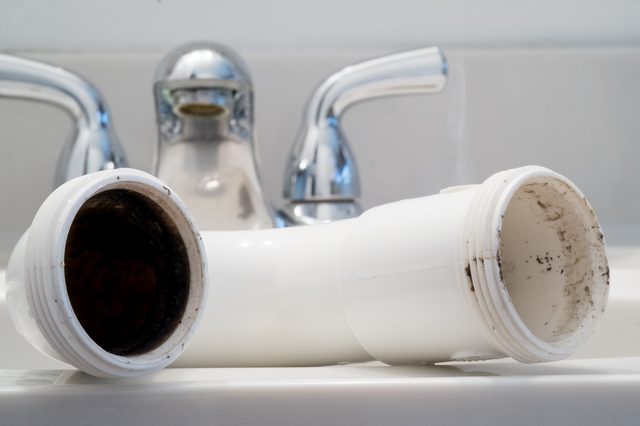Do you have questions about your private drinking water supply? How about wellhead protection, including the management of your private sewage treatment system? Send your questions using the Ask An Expert feature on this web site. Questions will be addressed by Nebraska Extension Educator Meghan Sittler, Nebraska Extension Specialist Bruce Dvorak, and/or Nebraska Extension Educator Katie Pekarek. One question and answer will be featured each month in this section of the acreage web site.
Q: When I turn on the faucet I detect an odor similar to rotten eggs. I’ve also noticed there’s some black buildup in some of the faucet components and flexible metal tubing. What is causing this?
Meghan: Odors that can be compared to rotten eggs are not ideal in your home or coming from your drinking water faucet. Sulfates, which are a combination of sulfur and oxygen, are naturally occurring minerals. They are found in some soil and rock formations where groundwater is also found. Bacteria that feed on sulfur can produce hydrogen sulfide gas which is the primary offender when it comes to odor.
Sulfates and hydrogen sulfide gas in drinking water are generally considered “nuisances” meaning they do not pose serious risks to human health. Elevated concentrations of sulfates can cause dehydration in small children or serve as a mild laxative for adults. However, most often people become acclimated to those levels and any issues tend to be minimized.
Hydrogen sulfide emits the rotten egg odor and at extremely high concentrations can cause people to become light headed if they are exposed to the gas for extended periods of time in a small confined area (i.e. a shower). However those instances are extremely rare. Occasionally the odor can actually come from a hot water heater if the magnesium corrosion control rod present in many hot water heaters interacts with sulfates in the water to form hydrogen sulfide gas.
Perhaps the largest challenge with these nuisance elements for the majority of people are that they can cause black sludge to form in pipes, water softeners and water fixtures in your home. This can also result in stains on clothes or other light colored linens in your home.
If you suspect you may have sulfates or hydrogen sulfide in your private water supply the first step is to have the water tested to determine the concentration of both elements in your water supply. There are several treatment options you can use to address sulfates or hydrogen sulfide. Treatments include distillation, reverse osmosis, activated carbon filtration, oxidizing filters, and de-aeration. More information about each treatment option as well as sulfates and hydrogen sulfide can be found at: water.unl.edu/category/drinking-water.

